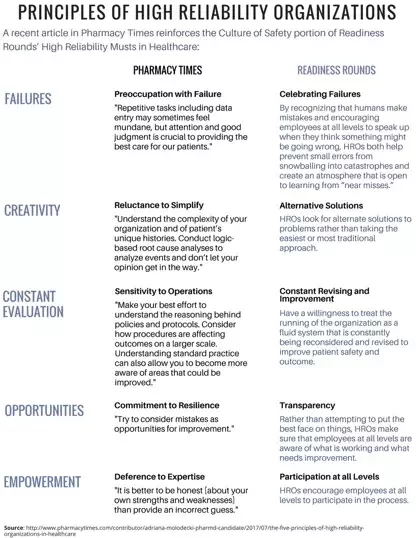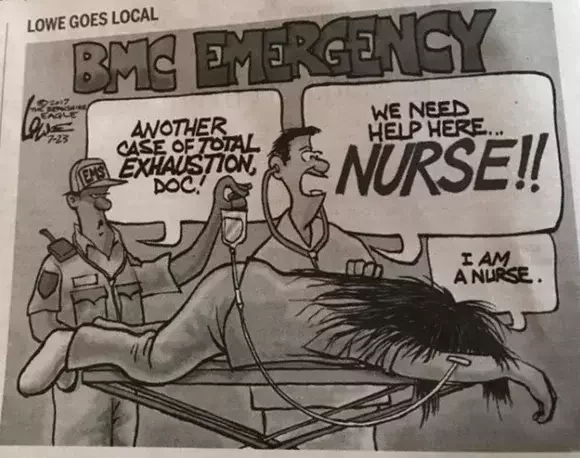
Principles of High Reliability Organizations
1. Failures:

2. Creativity:
3. Constant Evaluation:
4. Opportunities:
You can edit text on your website by double clicking on a text box on your website. Alternatively, when you select a text box a settings menu will appear. your website by double clicking on a text box on your website. Alternatively, when you select a text box
5. Empowerment:
6. Utilizing Data and Metrics:
Empathy = Competence? In the Hospital Setting
The following is an excerpt from a recent Scientific American article, written by Gordon Kraft-Todd on July 13, 2017:
"Is there a warmth/competence trade-off in people’s perceptions of doctors displaying empathic nonverbal behavior? This problem might sound like academic musing but it has major real-world impact. First and foremost, physician empathy (typically perceived as warmth) is associated with positive health outcomes, increased diagnostic accuracy and more patient adherence to treatment."
"Also, physician empathy is associated with increased patient satisfaction. Training doctors to be more empathic may thus benefit the “public good” in that we would all be slightly happier. But it benefits the private good, too. Health care reimbursement is increasingly tied to patient satisfaction surveys, and so it is in the economic self-interest of hospitals to ensure that their patients are satisfied. Ensuring their doctors are empathic can help them get there.
Can you relate? Hospital Staff & Exhaustion
Comic reads:
EMS: "Another case of total exhaustion, Doc!"
Doctor: "We need help here... NURSE!!"
Woman lying face down on the gurney: ..."I am a nurse."

From The Berkshire Eagle, Pittsfield, MA, July 23, 2017
